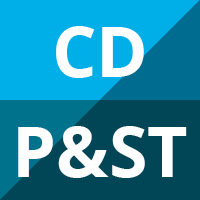
Cognitive rehabilitation for spatial neglect following stroke
Abstract Background Unilateral spatial neglect causes difficulty attending to one side of space. Various rehabilitation interventions have been used but evidence of their benefit is lacking. Objectives To assess whether cognitive rehabilitation improves functional independence, neglect (as measured using standardised assessments), destination on discharge, falls, balance, depression/anxiety and quality of life in stroke patients with […]

Occupational therapy for care home residents with stroke
Abstract Background Stroke is a worldwide problem and is a leading cause of adult disability, resulting in dependency in activities of daily living (ADL) for around half of stroke survivors. It is estimated that up to 25% of all care home residents in the USA and in the UK have had a stroke. Stroke survivors who […]

Multidisciplinary rehabilitation following botulinum toxin and other focal intramuscular treatment for post-stroke spasticity
Abstract Background Spasticity may affect stroke survivors by contributing to activity limitations, caregiver burden, pain and reduced quality of life (QoL). Spasticity management guidelines recommend multidisciplinary (MD) rehabilitation programmes following botulinum toxin (BoNT) treatment for post-stroke spasticity. However, the evidence base for the effectiveness of MD rehabilitation is unclear. Objectives To assess the effectiveness of MD […]

Repetitive transcranial magnetic stimulation for improving function after stroke
Abstract Background It had been assumed that suppressing the undamaged contralesional motor cortex by repetitive low-frequency transcranial magnetic stimulation (rTMS) or increasing the excitability of the damaged hemisphere cortex by high-frequency rTMS will promote function recovery after stroke. Objectives To assess the efficacy and safety of rTMS for improving function in people with stroke. Search […]

Interventions for treating pain and disability in adults with complex regional pain syndrome- an overview of systematic reviews
Abstract Background There is currently no strong consensus regarding the optimal management of complex regional pain syndrome although a multitude of interventions have been described and are commonly used. Objectives To summarise the evidence from Cochrane and non-Cochrane systematic reviews of the effectiveness of any therapeutic intervention used to reduce pain, disability or both in […]

Cognitive rehabilitation for executive dysfunction in adults with stroke or other adult non-progressive acquired brain damage
Abstract Background Executive functions are the controlling mechanisms of the brain and include the processes of planning, initiation, organisation, inhibition, problem solving, self monitoring and error correction. They are essential for goal-oriented behaviour and responding to new and novel situations. A high number of people with acquired brain injury, including around 75% of stroke survivors, […]

Inspiratory muscle training for the recovery of function after stroke
Abstract Background Inspiratory muscle weakness has been observed in patients with stroke. Inspiratory muscle training is an intervention that has shown possible effects for functional recovery of patients with stroke. Objectives To investigate the effect and safety of inspiratory muscle training for improving activities of daily living, respiratory muscle function, quality of life and cardiorespiratory […]

Home-based therapy programmes for upper limb functional recovery following stroke
Abstract Background With an increased focus on home-based stroke services and the undertaking of programmes, targeted at upper limb recovery within clinical practice, a systematic review of home-based therapy programmes for individuals with upper limb impairment following stroke was required. Objectives To determine the effects of home-based therapy programmes for upper limb recovery in patients […]

Interventions for age-related visual problems in patients with stroke
Abstract Background The prevalence of eye problems increases with age and, consequently, so does the level of visual impairment. As the incidence of stroke also increases with age, a significant proportion of stroke patients will have age-related visual problems. It is possible that the effect of interventions for age-related visual problems may differ in the […]

Interventions for disorders of eye movement in patients with stroke
Abstract Background Eye movement disorders may affect over 70% of stroke patients. These eye movement disorders can result in difficulty maintaining the normal ocular position and difficulty moving the eyes appropriately. The resulting functional disabilities include a loss of depth perception, reduced hand-to-eye co-ordination, marked difficulties with near tasks and reading and reduced ability to […]

